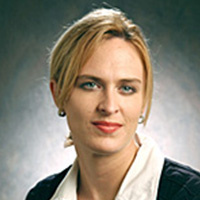 Howard White Collar Crime Lawyers, Ohio
Howard White Collar Crime Lawyers, Ohio
Sponsored Law Firm
-
 x
x

Click For More Info:
-
The Law Offices of Richard L. Cooper, P.A.
848 Brickell Avenue Suite 800 Miami, FL 33131» view mapDWI/DUI, Drug Trafficking, Felony Nationally Ranked Top 40 Under 40
With Richard L. Cooper you can expect a trusted confidant who will work diligently to fully understand your case and determine a road map to help you regain control of your life.
800-756-2781
Sponsored Lawyers
1-4 of 4 matches
White Collar Crime, Education, Immigration, Employment, International
Kendra L. Bunn is a Jacksonville, Florida-based immigration attorney and the founder of the Law Offices of Kendra L. Bunn, P.A., established in 2002. With over two decades of experience, she specializes in immigration law, including visa applications, investor applications, business work visas and family-based petitions. Her firm serves clients throughout Florida and has expanded to the Midwest, with offices in Marietta, Ohio, and Athens, Ohio. Ms. Bunn is recognized for her leadership in the legal community. She was one of the first female attorneys to practice immigration law in North Florida and has held significant roles such as the National Liaison to the USCIS Jacksonville Office, AILA Director of National Citizenship Day in Jacksonville, and National Mentor in the areas of F-1 students, researchers, and international faculty in higher education. Her Florida offices are located at 4720 Salisbury Rd, Jacksonville, FL 32256, and she offers services in multiple languages, including English, Serbo-Croatian, Macedonian, Russian, and Italian. Her Midwest offices are conveniently located between Columbus, Ohio and Pittsburgh, Pennsylvania, serving all of Ohio and Western Pennsylvania. In addition to her legal work, Ms. Bunn is involved in community service. She and her family are active members of the Christian Family Chapel in Mandarin, Jacksonville, Florida. She also volunteers frequently with many sports groups in town, while chasing around her two very busy and active children!
(more)



 Richard L. Cooper Miami, FL
Richard L. Cooper Miami, FL AboutMiami Attorney at Law
AboutMiami Attorney at Law ServicesCriminal Defense
ServicesCriminal Defense

